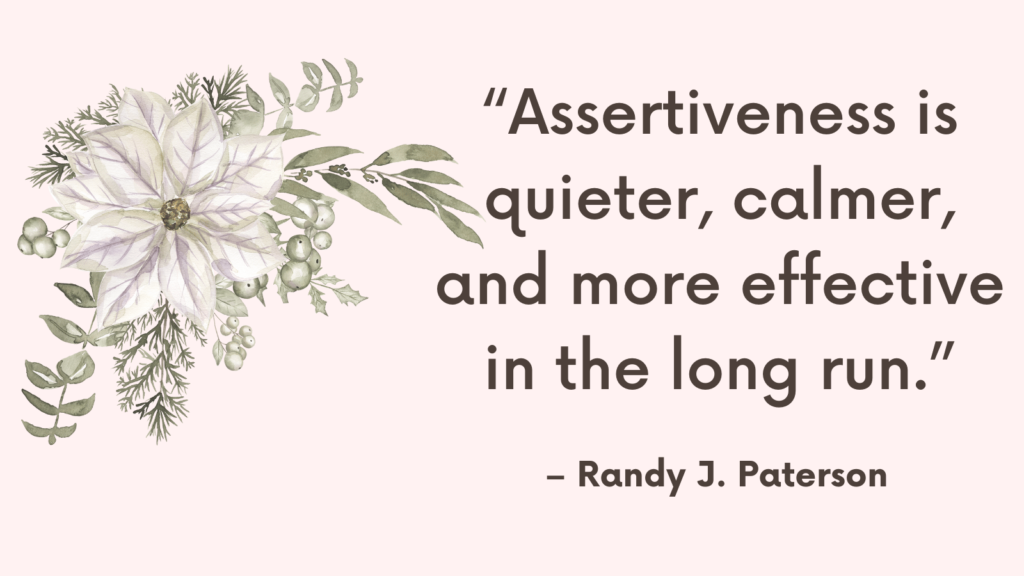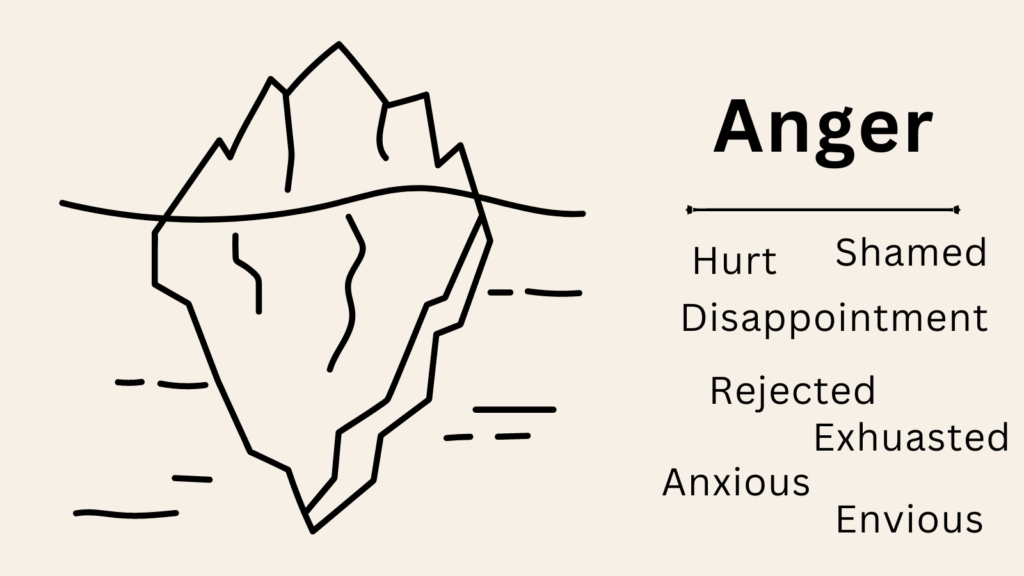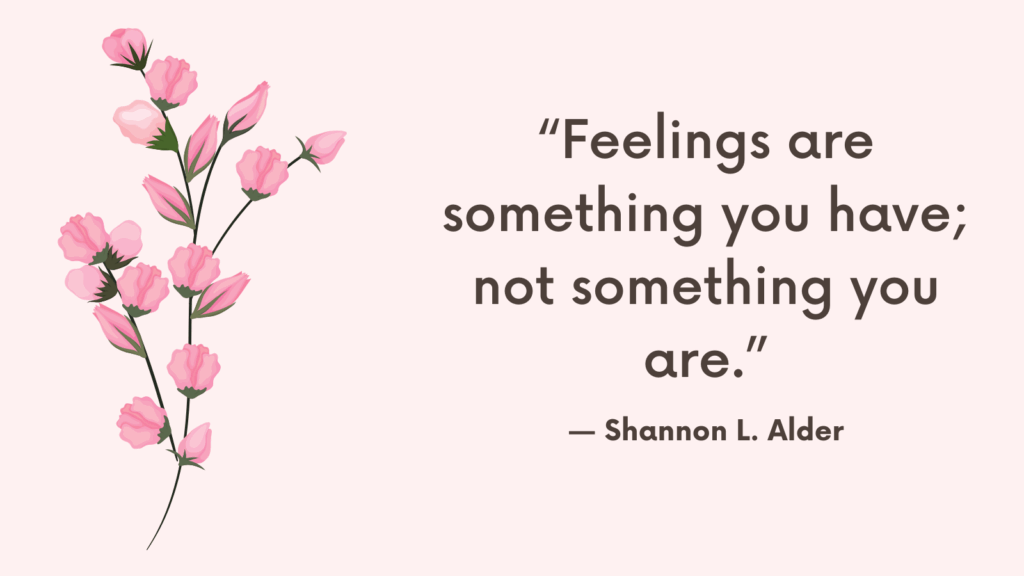In this post, you’re going to learn all about anger rumination.
What Is Anger Rumination?
Anger rumination refers to the tendency to continuously dwell on or replay angry experiences, thoughts, or memories in one’s mind.
It involves repetitively thinking about what made you angry, why it happened, and the various aspects surrounding the anger-inducing event.
This repetitive pattern of thinking can prolong and intensify feelings of anger and lead to increased distress.
When someone engages in anger rumination, they may find it challenging to let go of anger and move on from the triggering event.
Instead, they continually revisit and replay the anger-provoking thoughts, which can negatively impact their mental well-being and interpersonal relationships.
Anger rumination can be seen as a form of rumination, which is a pattern of overthinking or dwelling on negative emotions or events.
While some level of reflection can be helpful in processing emotions, excessive rumination can contribute to prolonged distress and hinder problem-solving abilities.
Related: Top 14 CBT Exercise For Anger Management (+FREE Anger Worksheets)
Anger Rumination: Top 10 Tips to Let Go
1. Recognize the Pattern
The first step in overcoming anger rumination is to become aware of this pattern of repetitive thinking.
Pay attention to the triggers, thoughts, and emotions associated with your anger.
Notice how rumination prolongs your distress and affects your mental and physical health.
Acknowledging this pattern is crucial for initiating change.
2. Practice Self-Compassion
Self-compassion involves treating yourself with kindness and understanding, especially during challenging times.
Instead of blaming yourself for feeling angry or engaging in rumination, offer self-compassion and understanding.
Treat yourself as you would treat a friend who is struggling.
This practice fosters self-acceptance and helps break the cycle of self-criticism.
Related: Assertive Anger: What It Is & How to Practice It
3. Challenge Negative Thoughts
Rumination often involves dwelling on negative thoughts and assumptions.
Challenge these negative thoughts by questioning their accuracy and rationality.
Ask yourself if there is evidence supporting or disproving your beliefs.
Practice reframing negative thoughts into more realistic and positive ones.
The following are some questions to ask yourself:
- Is my anger based on accurate information or assumptions?
- What evidence do I have to support this belief? Are there alternative explanations or perspectives?
- Am I exaggerating the negative aspects of the situation and minimizing the positive aspects?
- How would someone else view this situation? Would they react with the same level of anger?
- What are the potential long-term consequences of holding onto this anger? Is it worth the toll it’s taking on my well-being?
- Will letting go of this anger allow me to focus on more productive and positive aspects of my life?
- Are there any underlying emotions, such as hurt or fear, that might be fueling my anger? Can I address these underlying emotions directly?
- How important will this current issue be in the grand scheme of my life? Will it matter in a month, a year, or five years from now?
- What steps can I take to resolve this situation constructively, rather than dwelling on it and prolonging my anger?
4. Engage in Mindfulness
Mindfulness involves being fully present, non-judgmentally, in the current moment.
By focusing on the present, you can reduce the tendency to ruminate on past anger-inducing events.
Engage in mindfulness practices, such as meditation, deep breathing exercises, or mindful walking.
Cultivating mindfulness can help create space between your thoughts and emotions, enabling you to let go of anger rumination.
Related: Top 10 Silent Anger Symptoms
5. Channel Your Energy
Expressing anger in healthy ways can be cathartic and help release pent-up emotions.
Engage in physical activities like exercising, dancing, or practicing martial arts to channel your anger into productive outlets.
Additionally, creative pursuits like painting, writing, or playing an instrument can provide a healthy means of expression.
6. Practice Emotional Regulation
Developing emotional regulation skills is crucial to managing anger effectively.
Learn to identify your anger triggers and early warning signs, allowing you to implement coping strategies before anger escalates.
Techniques such as deep breathing, progressive muscle relaxation, and visualization can help calm the body and mind during moments of anger.
Related: Anger Iceberg: How to Use It (+FREE Anger Iceberg Worksheet PDF)
7. Cultivate Gratitude
Gratitude practices have been shown to shift focus from negative rumination to positive aspects of life.
Regularly express gratitude by writing in a gratitude journal, verbally acknowledging small joys, or performing acts of kindness.
This practice helps reframe your perspective, fostering a more positive mindset and reducing the inclination to ruminate.
8. Seek Social Support
Reach out to trusted friends, family members, or support groups who can provide a listening ear and empathetic understanding.
Sharing your thoughts and feelings can help provide perspective, gain new insights, and alleviate the burden of anger rumination.
Professional counseling or therapy can also be valuable in providing guidance and support.
Related: Best 10 Anger Management Books And Workbooks
9. Set Healthy Boundaries
Establishing clear boundaries in your relationships can prevent recurring situations that trigger anger and rumination.
Communicate assertively, expressing your needs and limits respectfully.
Learning to say “no” when necessary and prioritizing self-care can contribute to a more balanced emotional state.
10. Practice Forgiveness
Forgiving those who have angered or hurt you does not mean condoning their actions.
It is about releasing yourself from the burden of carrying resentment and anger.
Forgiveness can free you from the cycle of rumination and promote emotional healing.
However, forgiveness is a personal journey that takes time and may require professional guidance.
Try to understand the other person’s perspective, their motivations, and any contributing factors to their actions. This doesn’t mean justifying their behavior, but it can help you develop compassion and empathy.
Realize that a person’s actions do not define their entire being. People are complex, and their actions may not be a true reflection of who they are as individuals. This separation can help you view the situation in a more objective light.
Remember to extend compassion and understanding to yourself. It’s normal to feel angry and hurt, but beating yourself up or dwelling on self-blame will only prolong your suffering.
Related: Forgiving Someone Who Isn’t Sorry: 9-Step Guide To Free Yourself From The Past

Conclusion
Anger rumination can be a distressing experience that keeps us stuck in a cycle of anger, causing emotional turmoil and hindering our overall well-being.
However, there are effective strategies that can help individuals let go of anger rumination and cultivate healthier ways of dealing with anger.



